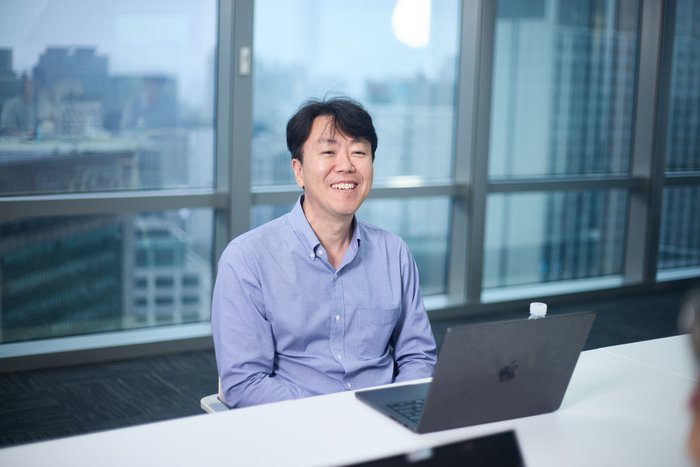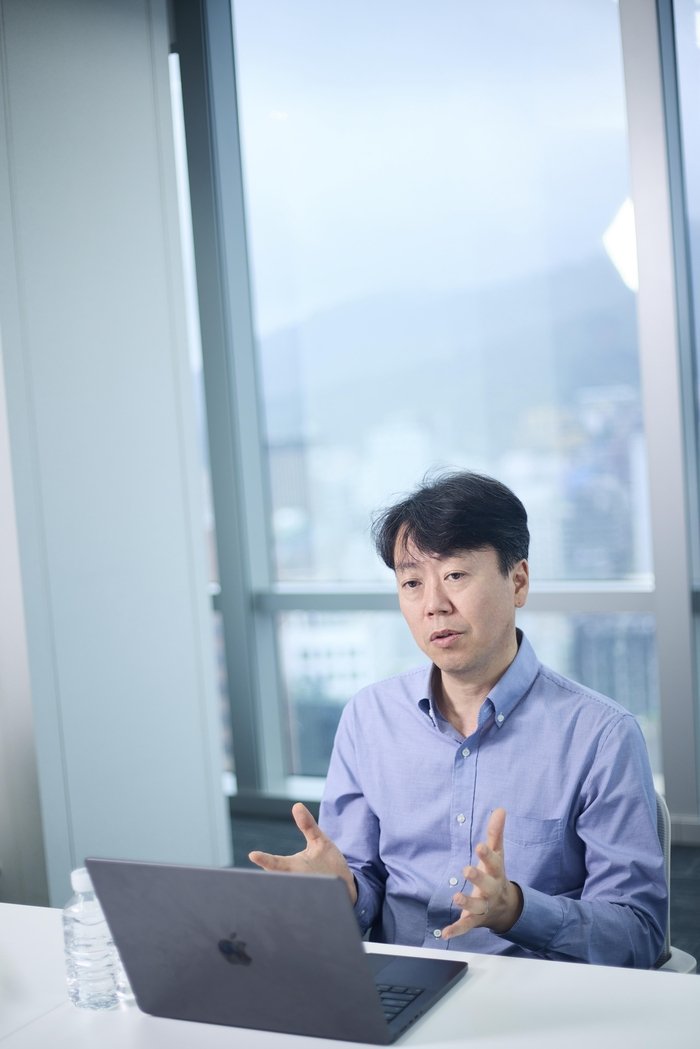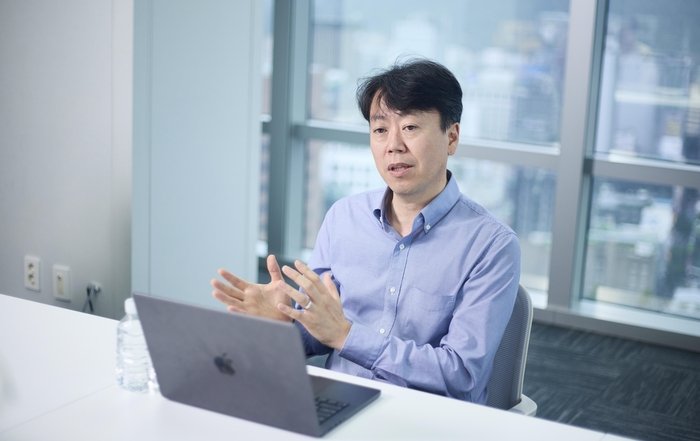SKT to secure technological sovereignty and industrial competitiveness to research next-generation AI design for environmental optimization in South Korea
After developing artificial intelligence (AI), we will not go in a way that informs ‘good performance’ through dozens of indicators. We will focus on practicality so that actual users can use it and evaluate it as “OK.”
Kim Tae-yoon (vice president) of SK Telecom’s foundation model said in a recent interview with Maeil Business Newspaper that he would put the AI competition on the actual experience, not the numerical value.
SK Telecom was selected as one of the five elite teams of the government’s “Independent AI Foundation Model” along with the AI Research Institute of Naver Cloud, Upstage, NC AI, and LG Management Development Institute. This project is part of the ‘Sovereign AI’ policy that the Lee Jae-myung government has put forward as a core AI strategy. Sovereign AI refers to sovereign AI that can be designed, operated, and serviced independently by the state, away from dependence on overseas big tech technologies.
Vice President Kim said, “It is not easy to catch up with the world’s best performance in a short period of time, but there are enough areas where ‘Korean AI’ can be evaluated as better in domestic industry and daily life.” Krafton, Fortitudat, AI semiconductor company Revelion, data start-ups Liner and Selectstar, Seoul National University, and KAIST will participate in the SK Telecom consortium. They plan to apply “Omnimodal” technology that can process not only text but also various types of data such as images, voices, and videos in an integrated manner.

In particular, SK Telecom will start researching ‘Post Transformer’, a next-generation AI structure, from the second half of this year. Transformer is the basic structure of the current large language model developed by Google, and most models such as GPT and Lama follow this method. However, it is pointed out that the transformer structure consumes a lot of power due to the large amount of computation, and has limitations in long contextual processing or combining various forms of information. Post-transformers are being researched around the world as a next-generation design that improves these limitations to increase computational efficiency and reduce power use. Vice President Kim said, “We will test the structure tailored to domestic data and environment, and try a completely new form if necessary.”
In fact, experts believe that post-transformer development is the key to real Sovereign AI implementation. This is because performance, security, and service direction can be completely controlled only when independence is secured from the model design stage. Vice President Kim said, “The post-transformer proposal means that we will also do research at a level that deviates from the existing structure,” adding, “As the consortium is joined by leading professors who were in charge of machine learning at Seoul National University and KAIST, we will also conduct prior research to change the structure.”

SK Telecom’s goal is ‘model performance’ and ‘service spread’. AI will be applied to SK Group’s manufacturing, energy, bio, and semiconductor sites, and models will be installed in B2C service ‘Aidat’, Krafton games, and Forti-to-dot mobility services. It plans to spread the use that can be directly felt in the field, such as automating customer center counseling, supporting report creation, and analyzing and monitoring industrial processes. Vice President Kim said, “The value of AI is to save users’ time and increase convenience,” adding, “We will compete in user experience, not in technology competition.” Regarding this project, he stressed, “It is not a project that will be done once, but a long-term challenge to secure national technological sovereignty and industrial competitiveness at the same time.”























